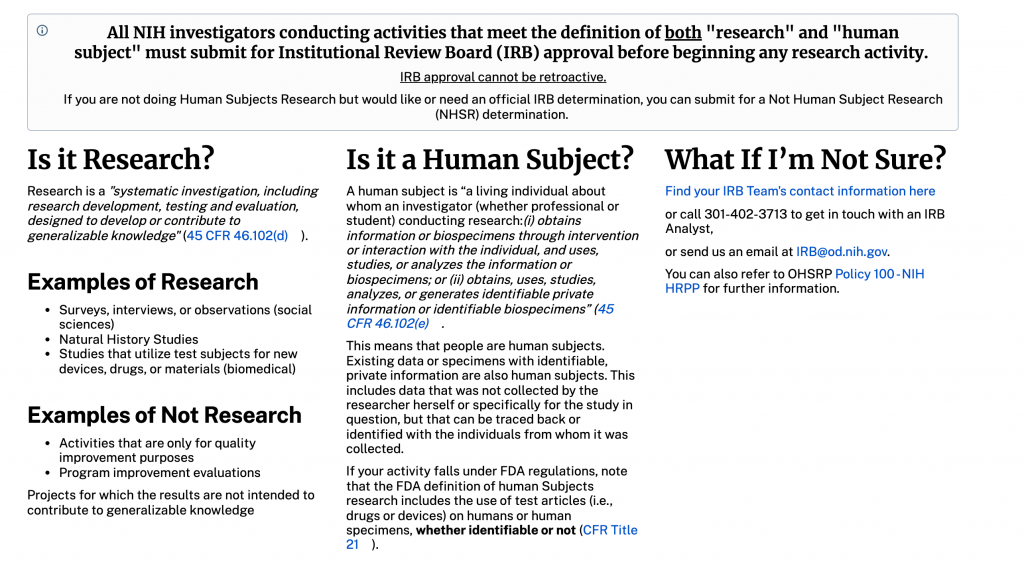One of the first things I set out to do, alongside preliminary background research, was applying for an IRB. IRB stands for institutional review board, and you must apply to one to be able to publish your paper. My paper is qualitative research: I’m not measuring data, merely observations and experiences. This makes the IRB process slightly less difficult, but difficult nonetheless. Because I am applying to such a large entity like the NIH (National Institute of Health), there are lots of hoops to jump through which make everything slightly more difficult. Here are some of their extensive guidlines:

Because my research spans two continents, that adds another layer of complexity as I have to apply for IRBs in both Saudi and the US.
However, IRB application is not the only thing I’ve been working on. I’ve been doing a lot of preliminary background reading that is comprehensive to the issues we currently face today in healthcare. I’m gathering a list of problems that we are facing, as well as statistics and data to prove that these problems truly do exist. Articles and studied I’ve been reading include (but aren’t limited to)
→ The Faces of Poverty in North Carolina by Gene R. Nichol
→ Undocumented migrants in Saudi Arabia: COVID-19 and Amnesty Reforms
→ Civic Stratification and the Exclusion of Undocumented Immigrants from Cross-Border Health Care
Food for thought: how different would the world be without social media? In someways, social media is the only way for BIPOC to tell the world about discrimination they’ve faced in healthcare. Otherwise, they would be consistently ignored, or told that this is merely a figment of imagination like they were for centuries. Sites like Twitter have become tools for the disenfranchised, and I fear a world in which censorship becomes the norm.
